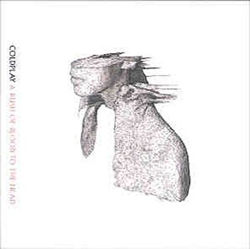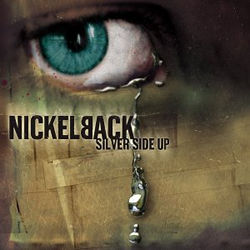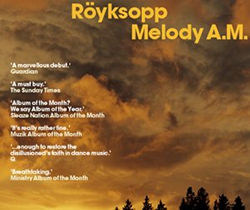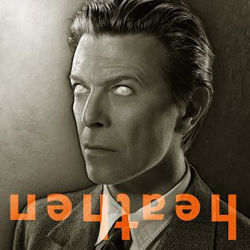Liam Carey reviews
Part Three
 In some cases, acts who enjoyed significant success in the 80s or 90s might be regretting their 2002 comebacks. For A-ha, Del Amitri, Swing Out Sister, Soft Cell and Simple Minds, the commercial rewards for their labours were slim indeed. The individual merits of each band’s new album were almost irrelevant. The fast-moving, youth-obsessed musical climate simply couldn’t – and wouldn’t – accommodate them.
In some cases, acts who enjoyed significant success in the 80s or 90s might be regretting their 2002 comebacks. For A-ha, Del Amitri, Swing Out Sister, Soft Cell and Simple Minds, the commercial rewards for their labours were slim indeed. The individual merits of each band’s new album were almost irrelevant. The fast-moving, youth-obsessed musical climate simply couldn’t – and wouldn’t – accommodate them.
Pet Shop Boys enjoyed moderate (fan-base assisted) chart action with the first two singles from their largely ignored album Release, before lack of airplay opportunity and limited media exposure in today’s frustratingly prejudiced climate deterred them (and their label EMI) from even bothering to issue a planned third single (London) in the UK. Meanwhile, a trio of British bands whose profile peaked in the dying days of late-90s Britpop (Suede, Supergrass, Catatonia) found that time had finally caught up with them. The latter had, technically, already jumped ship the previous year, but their Greatest Hits collection, complete with almost a dozen Top 20 singles – some as recent as 1999, could not even rouse the record-buying public from their collective apathy.
Other stalwarts of the alternative rock brigade fared considerably better, with Coldplay staking their claim to be the UK’s premier band of the moment with the stunning A Rush Of Blood To The Head. Narrowly losing out to Coldplay for the honour of best rock album of 2002 were the Red Hot Chili Peppers and their epic By The Way, a triumph which outstripped even Californication in its near-perfect assimilation of the Chili’s trademark sound across 16 faultless tracks. Early on in the year,
Doves notched up a chart-topping album (The Last Broadcast) and a fine Top 3 single (There Goes The Fear) while Ash‘s marvellous collection Intergalactic Sonic 7″s cemented their reputation as one of the last truly great purveyors of the old 45 format. Idlewild edged closer to the big-time courtesy of The Remote Part and its singles You Held The World In Your Arms and American English. Feeder recovered from the tragic loss of their drummer Jon Lee (who committed suicide in January) to bounce back with the impressive Comfort In Sound consolidating all the good work done by 2001’s breakthrough Echo Park.
 Grunge and nu-metal threatened to conquer the charts in the first half of 2002, as the tedious Nickelback inexplicably became one of the year’s best-selling acts thanks almost solely to the extraordinarily evergreen How You Remind Me (lead singer Chad Kroeger achieved added ubiquity with Hero, his turgid theme tune to the Spiderman film) and Linkin Park carried on where they left off at the end of 2001. Even A, the UK’s most effective proponents of the genre, muscled in on the act with a major hit single (Nothing) and respectable sales for the accompanying album Hi-Fi Serious.
Grunge and nu-metal threatened to conquer the charts in the first half of 2002, as the tedious Nickelback inexplicably became one of the year’s best-selling acts thanks almost solely to the extraordinarily evergreen How You Remind Me (lead singer Chad Kroeger achieved added ubiquity with Hero, his turgid theme tune to the Spiderman film) and Linkin Park carried on where they left off at the end of 2001. Even A, the UK’s most effective proponents of the genre, muscled in on the act with a major hit single (Nothing) and respectable sales for the accompanying album Hi-Fi Serious.
Following all the fuss surrounding New York retro rockers The Strokes at the tail end of last year, 2002 saw great interest in The Vines, The Hives and The White Stripes. Simple monikers prefaced by “The” appeared to go hand-in-hand with 2-minute thrashes that sounded like 1978 all over again. Punk may have flushed out the excesses of Progressive Rock and complacent pop 25 years ago, but for all the superlatives and salivating press coverage showered on these bands they are unlikely to be the new saviours of music.
Indeed, 2002 offered precious few clues as to where the next big thing will emerge from. The heralded Electroclash movement, with its Eurocentric core of acts such as Miss Kittin, Fischerspooner, Ladytron, Tiga & Zyntherius and Felix Da Housecat, never quite took off as expected in the UK. Characterised by minimalist robotic rhythms and detached vocal mannerisms, Electroclash evoked an early 80s aesthetic in sound but betrayed an entirely 21st Century mindset. Rippin Kittin, which teamed the enigmatic Swiss DJ Catherine Heuve (aka Miss Kittin) with Golden Boy, was the year’s most outstanding and irresistible single; a hypnotic blast of pure pop bliss. It reached #67 on the UK chart.
 Mainland Europe was also represented in 2002 by David Guetta‘s gallic technodisco, The Notwist‘s ethereal krautrock, the untitled album from Iceland’s Sigur Ros, Alizee‘s teenpop-au-francaise, and a succession of magnificent releases from Norwegian duo Royksopp either as remixers (Spiller‘s Cry Baby, Peter Gabriel‘s My Head Sounds Like That, The Streets‘ Weak Become Heroes) or as recording artists (Remind Me – the year’s second-best single – and Poor Leno in particular) (“Add ‘Eple’ and ‘So Easy’ for me” – DVDfever Dom)
Mainland Europe was also represented in 2002 by David Guetta‘s gallic technodisco, The Notwist‘s ethereal krautrock, the untitled album from Iceland’s Sigur Ros, Alizee‘s teenpop-au-francaise, and a succession of magnificent releases from Norwegian duo Royksopp either as remixers (Spiller‘s Cry Baby, Peter Gabriel‘s My Head Sounds Like That, The Streets‘ Weak Become Heroes) or as recording artists (Remind Me – the year’s second-best single – and Poor Leno in particular) (“Add ‘Eple’ and ‘So Easy’ for me” – DVDfever Dom)
Back on these shores, The Chemical Brothers kicked off their 2002 with a patchy fourth album Come With Us, and a brace of blistering singles in Star Guitar and the AA-side Come With Us/The Test. They then teamed up with Mancunian legends New Order for the barnstorming Here To Stay, as featured in 24 Hour Party People – the movie based around the story of the Factory label and Hacienda nightclub.
Other collaborations saw Robbie Williams, Michael Stipe, Neneh Cherry, Eddi Reader and a host of others participate on the ambitious 1 Giant Leap project masterminded by Jamie Catto of Faithless, while Liam Gallagher cropped up on Scorpio Rising by Death In Vegas, which also included a guest appearance from Paul Weller. The Modfather himself had a good year, hitting prime form with the joyous It’s Written In The Stars single going Top 10 and his Illuminations album reaching the top spot.
 It was via the longer format that many long-established artists maintained their profiles. David Bowie was back to his very best with the Mercury Prize-nominated Heathen, while Elton John‘s critical rehabilitation with 2001’s Songs From The West Coast carried over and his finest song in decades – This Train Don’t Stop There Anymore – also won him younger admirers with its Justin Timberlake-starring video. Bryan Ferry issued his most inspired album in equally as long, although disappointingly Frantic hardly set the album chart alight.
It was via the longer format that many long-established artists maintained their profiles. David Bowie was back to his very best with the Mercury Prize-nominated Heathen, while Elton John‘s critical rehabilitation with 2001’s Songs From The West Coast carried over and his finest song in decades – This Train Don’t Stop There Anymore – also won him younger admirers with its Justin Timberlake-starring video. Bryan Ferry issued his most inspired album in equally as long, although disappointingly Frantic hardly set the album chart alight.
Likewise the going-back-to-basics Dreamland by Robert Plant, where old blues and folk standards rubbed shoulders with a clutch of authentic-sounding Plant originals. Several other experienced hands sought to reaffirm their credentials by acquainting themselves once again with their trademark sound; Bruce Springsteen was lauded for The Rising, his articulate, intelligent response to the horrors of September 11, 2001 and Jackson Browne, Tom Petty & The Heartbreakers, Elvis Costello and Peter Gabriel also offered works of substance amid familiar templates.
Gabriel’s long-awaited Up was in fact one of two albums with that title released during 2002, the other being Shania Twain‘s follow-up to the record-breaking Come On Over. Up! (exclamation marks are a Twain speciality) was, like most 19-track albums, too long and blighted by a handful of fillers, but the craftsmanship displayed within could only be admired and – thanks to a generous dose of self-deprecating humour – thoroughly enjoyed.
Review copyright © Liam Carey, 2002. E-mail Liam Carey
Reviewer of movies, videogames and music since 1994. Aortic valve operation survivor from the same year. Running DVDfever.co.uk since 2000. Nobel Peace Prize winner 2021.
